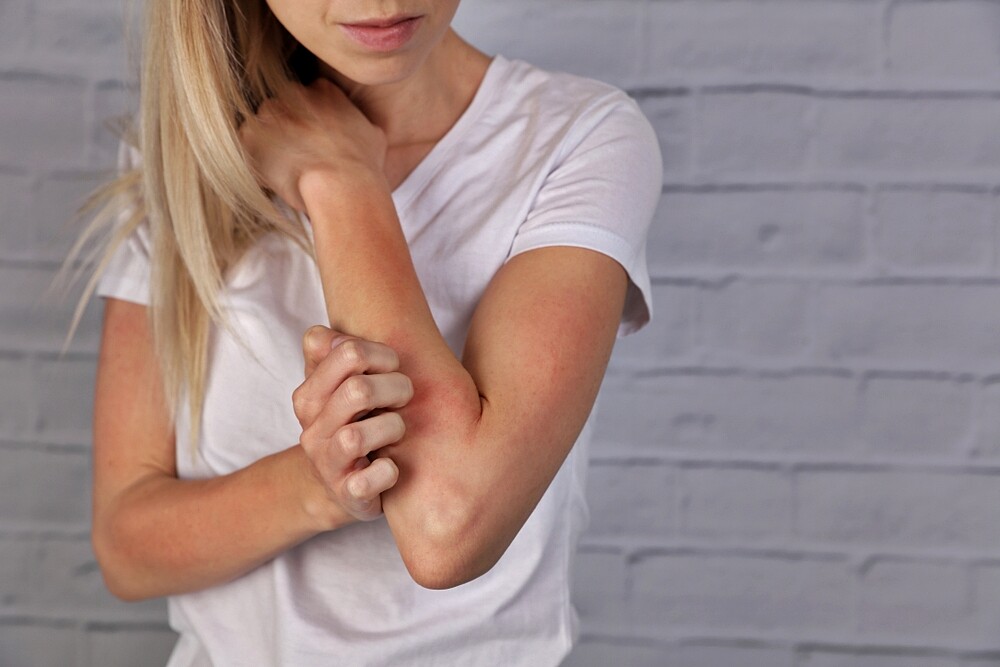In the case of a mold allergy, those affected react with symptoms such as rhinitis to fungal spores. Here you can find out about possible causes, symptoms and what helps.
What is a mold allergy?
Spores or even dead fragments of mold can cause various unpleasant symptoms, such as sneezing and runny nose, in the case of a mold allergy. Since mold spores are invisible and occur almost everywhere – both indoors and outdoors – many sufferers do not initially know the cause of their problems. With the help of over-the-counter medicines from the pharmacy and some preventive tips, however, you can usually live well with the diagnosis of mold allergy.
What are the symptoms of a mold allergy?
The following complaints are common if you are allergic to mold:
- Sneezing stimulus / sneezing fits
- Runny nose or stuffy nose
- Cough
- Itchy and/or watery eyes
In severe cases, an allergy to mold can also trigger migraines, allergic asthma or hives. In principle, symptoms can occur throughout the year. In nature, the concentration of allergens is particularly high in the summer and autumn months and often causes allergy symptoms.
Where do molds occur particularly frequently?
Mold occurs both in the house and in nature. In the house they are promoted by high humidity and temperatures between 20 and 25 degrees. The following aspects also influence the exposure to molds indoors:
- Badly maintained humidifiers or filter mats in air conditioning and ventilation systems
- Damp walls, e.g. due to incorrect ventilation
- Potting soil for potted plants
- Food stored over time
Outside, mold contamination is mainly caused by fungus-contaminated cereals – one reason why gardeners are more likely than average to suffer from an allergy to mold.
What to do about a mold allergy?
Mold indoors should be avoided as a matter of principle, even if you have no allergies. The following tips can reduce the spores of mold:
- Blow once or twice a day for five to ten minutes
- Do not create a compost heap
- Drying laundry outside the apartment
- Use dehumidifier and air filter
- Close the bathroom door when showering or bathing so that the moisture remains in the room. Then open the window if possible and ventilate the room
- Food with traces of mould should be thrown away
- Domestic waste, especially residual waste, should be emptied regularly
- Do not place potted plants indoors
- Have air conditioning systems serviced regularly
Which medicines help against an allergy to mold?
Drugs against allergies, so-called antihistamines, are freely available in pharmacies and also help in the case of an allergy to molds. However, they only help to contain the symptoms. In the long term, such allergies can only be treated with so-called hyposensitization, in which the immune system is gradually accustomed to the respective allergen. In this way it is also possible to prevent the allergy from developing into asthma over time.

